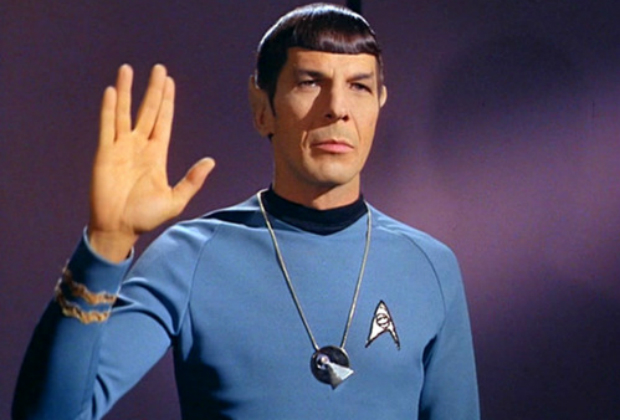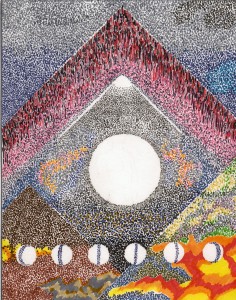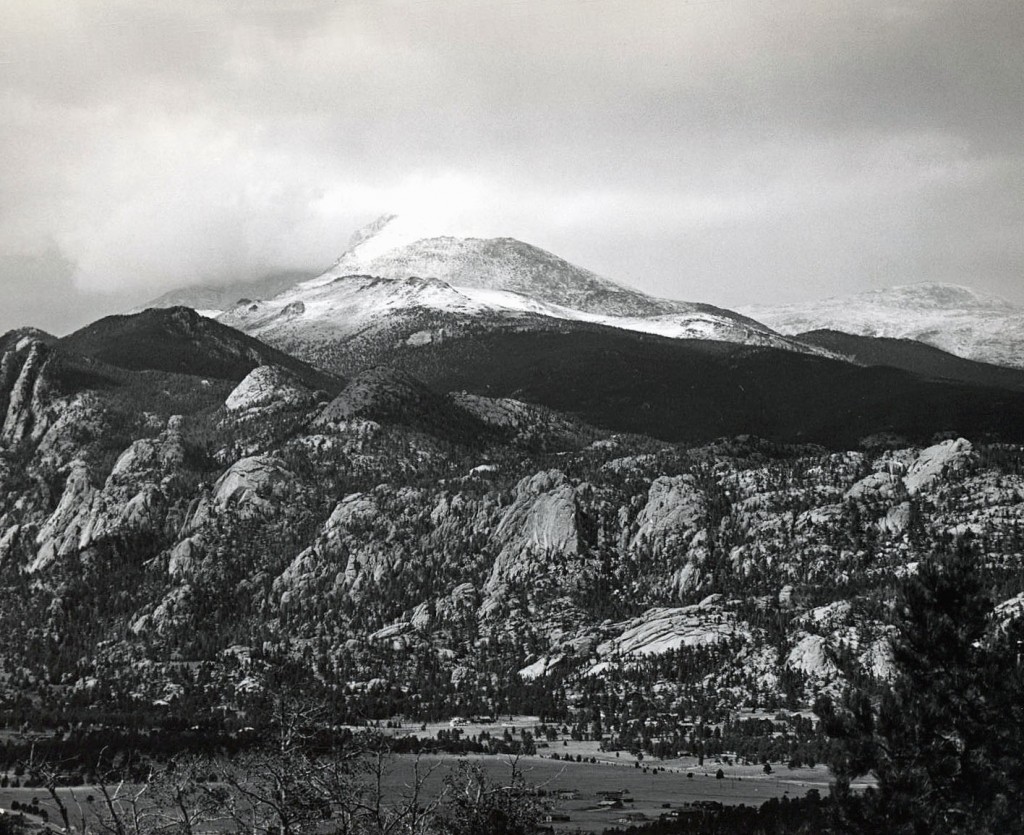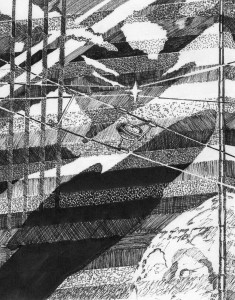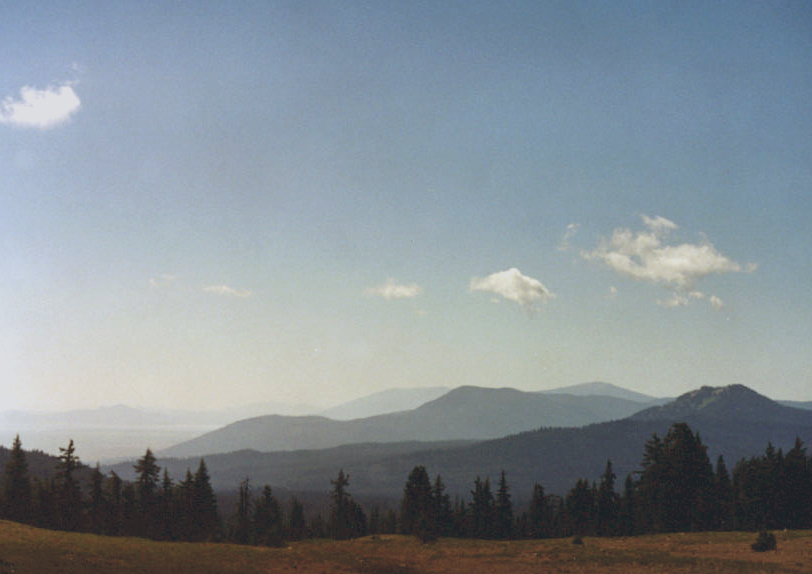As usual, Florida is still undecided, a mess. According to NPR, though, it is leaning heavily toward Obama, despite the shenanigans of the state GOP in suppressing the vote.
I didn’t watch last night. Couldn’t. We went to bed early.
But then Donna got up around midnight and woke me by a whoop of joy that I briefly mistook for anguish.
To my small surprise and relief, Obama won.
I will not miss the constant electioneering, the radio ads, the tv spots, the slick mailers. I will not miss keeping still in mixed groups about my politics (something I am not good at, but this election cycle it feels more like holy war than an election). I will not miss wincing everytime some politician opens his or her mouth and nonsense spills out. (This is, of course, normal, but during presidential years it gets much, much worse.) I will not miss…
Anyway, the election came out partially the way I expected, in those moments when I felt calm enough to think rationally. Rationality seemed in short supply this year and mine was sorely tasked. So now, I sit here sorting through my reactions, trying to come up with something cogent to say.
I am disappointed the House is still Republican, but it seems a number of the Tea Party robots from 2010 lost their seats, so maybe the temperature in chambers will drop a degree or two and some business may get done.
Gary Johnson, running as a Libertarian, pulled 350,000 votes as of nine last night. Jill Stein, the Green Party candidate, got around 100,000. (Randall Terry received 8700 votes, a fact that both reassures me and gives me shivers—there are people who will actually vote for him?)
Combined, the independent candidates made virtually no difference nationally. Which is a shame, really. I’ve read both Stein’s and Johnson’s platforms and both of them are willing to address the problems in the system. Johnson is the least realistic of the two and I like a lot of the Green Party platform.
But the Greens are going about it bass-ackward. Vying for the presidency when you can’t even get elected dog catcher in most states is hardly the way to go about it. What would she do if by some weirdness she got elected? I think it fair to say a Green presidency this morning would guarantee both major parties working together for the foreseeable future against her. No, what they need to do is start winning local elections. Start with city councils and school boards, work up to state legislatures, then a governor or three, and finally Congress. Yes, that will take time, maybe far more time than anyone has the patience for, but for goodness sake, start.
Which leaves me feeling mixed about the next four years.
Here is what I would like to see happen. Obviously, Joe Biden is not going to run for office in 2016. Even if he did, I doubt he’d win, but I think he’s V.P. the same way Dick Cheney was. An ace in the hole if something happens to the Pres, but not a threat in the next election. Therefore, the House Republicans have no excuse but to work with the Democrats to get something done. However you spin it, the last four years have been, in my view, a criminal abdication of responsibility on the part of the GOP, all to “make sure Obama is a one-term president.” They have squandered the People’s confidence and time and treasure in a party feud that frankly has no real basis other than on the fringes.
That said, the next four years should give them permission to get something done for the country. They don’t have to work to defeat Obama in 2016, he’s not running then. Anything that gets done, they can take credit for. Whoever runs for the Democratic nomination in 2016, it will be a repeat of 2008—two brand-spanking new candidates. (Romney has said he won’t run again. We’ll see.) So there is no reason other than the meanest kind of pettiness to keep blocking.
It is time we got over this artificial divide about capitalism vs. socialism. We are supposed to be grown-ups here, labels shouldn’t scare us. The best antidote for that kind of fear is to actually learn something about what scares you, and as far as I can see most of the people who are so terrified that Obama is some kind of socialist (or communist!) are exercising the same kind of intelligence on the subject as those who believe he’s a Muslim or is not a citizen. (They are exemplified by the sign carrier demanding “Keep your government out of my MediCare!”) For pity’s sake, people, read a book!
I’ve said this before, probably to little effect, but I will say it again, Capitalism is a system, not some kind of organic natural law thing. As such, we determine its shape and how it should be used, not the other way around, and it is the same with any other system (like Socialism). After the Great Depression this country put in place a number of socialist ideas and whether certain folks wish it to be true or not, they have worked well for us as a nation.
Here are a few things that people should consider. One, any economic system is, at its simplest, simply a method for organizing latent wealth. By latent wealth I mean the potential product in a given community. (You can live on a mountain of diamonds but if some kind of organizing principle is not applied to take advantage of those diamonds, they just sit there. The system you use organizes the work needed to exploit the resource. But let’s be clear—the person or corporation that brings that system into that community does not by dint of that fact own the labor, the land, or the total product. The community living there has to give permission, cooperate, and assist in implementing the organizing system, and therefore when Elizabeth Warren made her famous statement that “you didn’t build that all by yourself” that is what she meant, and anyone who claims not to understand that I think is being deliberately obtuse.) Therefore, we should be willing to apply the methodology best suited to solve specific problems. We are a polyglot nation, we already use a variety of methodologies depending on region and circumstance, we need to stop being knee-jerk reactionary about this subject.
Consequently, we need to understand a couple of things in slightly different ways. Currently, we have a problem with large businesses extracting latent wealth from communities and shifting it away from those communities, in fact away from our national borders altogether. One of the chief tools to counter that is taxes. Tax dollars drain off a portion of that wealth and return it to the community. Taxes fix the location of a certain proportion of generated wealth. Bitch about government spending all you want, the fact remains that money gets spent, in the main, here and therefore helps sustain the community.
To a lesser extent, this fight over minimum wage and Right To Work is misguided. Requiring businesses to pay a fair wage to their employees also serves to keep that wealth local. You don’t build a business in Idaho and then, because shareholders are complaining that their dividends are too low, shift those jobs out of the country to increase bottomline. It should be illegal for businesses to take advantage of location for fiscal purposes while utilizing outsourcing in order to extract money that then does not return to that community. Right To Work is merely a tactic to suppress local ability to retain local wealth. We need to start looking at these two things this way or we will see ourselves the richest Third World nation on the planet.
I want to see the military-industrial complex curtailed if not shut down. Eisenhower warned us of this, but his warning was not based on something that hadn’t happened. The Spanish-American War is our most famous example of a war begun by private industry for the sole purpose of increasing profits. We are locked in a cycle of perpetual preparedness and in order to justify the expenditures, we engage in constant military conflict. We have provided the United Nations with the backbone of its policing power for decades, and while this made sense in the aftermath of WWII when most of the world was devastated, it no longer does—the world has recovered, they can afford to pony up soldiers and materiél. I support the idea of the United Nations, but the United States has been shouldering a disproportionate share for decades. I suspect the main reason we have not stopped has entirely to do with the money-making of the defense contractor sector.
Along with that, we must pull back from the blatantly unConstitutional internal security and intelligence practices that have become worse since 9/11. I was sorely upset when Obama reauthorized the defense authorization act.
But worse than the standing military, that act, along with others, has allowed us to do an end-run around Posse Commitatus by militarizing local police forces. Our police have become more and more akin to the Stazi in make-up and outlook and this has to stop before we are so inured to it that we can’t recognize loss of civil rights until the cop is knocking on our door for a warrantless search of our home.
A large step to undoing this would be to do something about this absurd war on drugs. I am not a fan of drugs—hell, I never even smoked a joint—but our response has been distorting of our courts and our police and our national priorities. The only thing that keeps us from doing something rational is the huge amounts of money involved at all levels. This has to stop. We can’t afford to keep doing this, not so much from a fiscal point of view but from the effect it has on all of us, a coarsening of our national psyché, a desensitization to individual circumstance.
Lastly, I would like to see an effort made to address the pathetic state of our educational priorities. We are becoming a severely divided nation, not so much along class lines (although that is true, too, and I suspect the two are linked), but along the lines of the Knows and the Know Nothings.
Todd Akin sat on the House subcommittee for science. Need I say more? (Yes, I probably do.) All right. Akin is a supporter of creationism. I don’t have any problem with someone espousing that view—what I have a problem with is someone with that view serving on what should be a science committee, and with people being okay with that. If that were not enough, his statements about women’s biology demonstrated that he knows little—or doesn’t care—about actual science (never mind what his views on women’s rights are), and this is a very serious problem, not so much that an elected official should be ignorant along these lines, but that he is representative of people who are even more ignorant. That goes to education.
No Child Left Behind was one in a string of legislative actions that turned schooling into a horse race. Getting the scores up are all that matter, so our “ranking” doesn’t fall. This has nothing to do with what it actually taught or what kids really know when they get out of school. We need a serious reform lest we keep producing people who, through no real fault of their own, believe the Earth is only six thousand years old and understand next to nothing about biology, never mind evolution.
And I’m sorry—just because you have decided in advance that you don’t believe something doesn’t make it either not true or give you the right to keep others from learning about it. Nor does it let you off the hook from knowing enough about it to make an informed decision about rejecting it.
I am not by disposition an isolationist, but I do believe this country has been engaging the rest of the world in the wrong way. We have been—always—very proactive when it comes to defending our business interests overseas, and the overwhelming amount of our foreign policy is less individual-oriented as it is corporation-oriented. Granted, this simplifies things—but it also distorts things and leads us to make bad choices in places where we don’t know the culture. We’re paying a heavy price for that from the Fifties. Our priorities need to change from corporatocracy to our oft-stated and seldom-deployed belief in the individual.
There are other things on my mind, but that’s enough for now.
That’s what I would like to see happen.
What do I expect?
We have been engaged, at street level, in a battle over what it means to be an American, and the ingredients have gotten bizarre. We have forgotten somewhere along the way that our right to have that battle is our chief defining national characteristic, that winning it is both impossible and beside the point. Being able to disagree and still have barbecue together has always been the American miracle, and we’ve been losing that.
But I expect it to continue. Both parties, plus the corporate backing of both parties, have been feeding that conflict because, well, it’s been good for business. In the crossfire we have forgotten what is genuinely important and started handing over our liberties like good soldiers in an endless war. So in truth, I expect any real progress to happen on the margins, at times and in places where national attention is elsewhere, under conditions of exhaustion, when no one is paying much notice. The bread and circuses will continue—well, the circuses, anyway, I’m not so sure about the bread.
The world chimed in recently in polls that asked who other countries wished to see win the election. In the run up, surveys in over 20 countries indicated a vast preference for Obama—the only two that favored Romney were Israel and Pakistan. Hm.
But for now, what I’m looking forward to is a few weeks with considerably less politicking. I’m a bit frazzled from concern. I have some fiction to write and Christmas to prepare for.
The thing I’m most pleased about? Tammy Baldwin and Elizabeth Warren. I’ll leave you to figure out why.
Have a good day.



